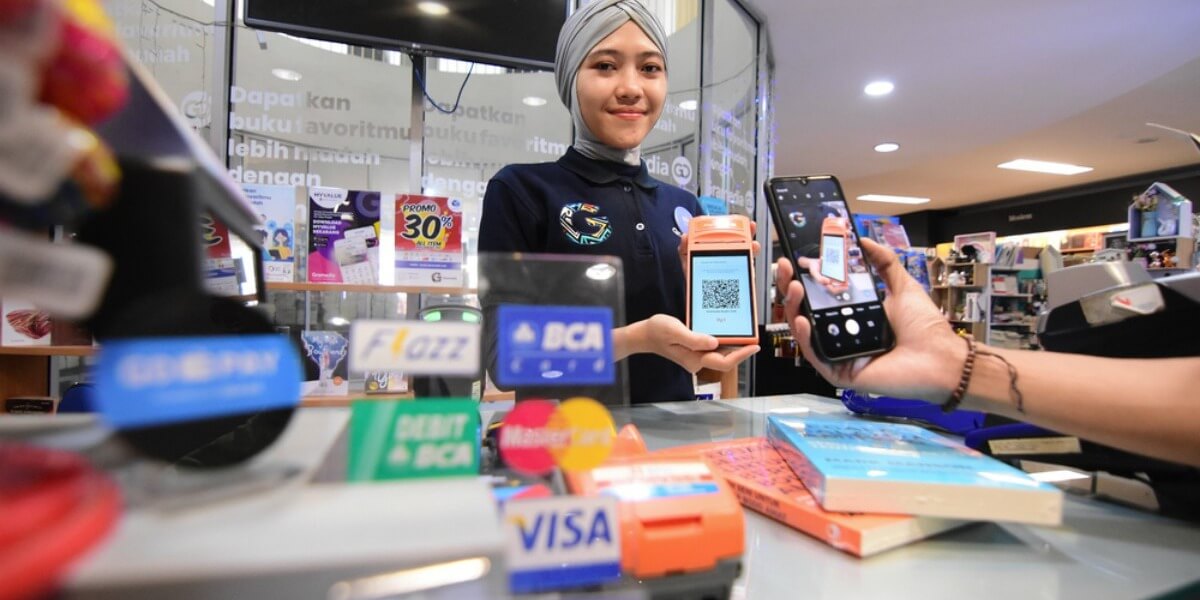Indonesia Sharia Economic Festival 2020 to focus on new strategies and business models for halal companies to thrive
JAKARTA – The annual Indonesia Sharia Economic Festival returns this week albeit online as the COVID-19 pandemic continues to restrict movements and forces social distancing.
Organized by the central bank and the Indonesia Halal Lifestyle Center, ISEF will focus on exploring new strategies and business models for the Islamic sectors amid ongoing pandemic-era challenges, the Center’s chairperson Sapta Nirwandar told Salaam Gateway.
He expects a greater focus, and improvement, of business matching during the event, particularly in technology, pharmaceutical and F&B sectors.
“Some sectors, such as travel, hotels, restaurants and tourism in general have been affected by the pandemic but at the same time, there are opportunities. Business owners should be ready to shift more towards digital since technology and digital literacy could be the key for business sustainability,” said Sapta.
“Halal companies can’t rely on existing tech to compete in the future halal industry. They should consider to invest in other technology such as mobile internet, AI, VR and AR, cloud technology, IoT, advanced robotics, biometric technology, 3D printing, genomics and blockchain, aligned with their business model.”
One halal company moved quickly to meet demand during the pandemic.
Helianti Hilman, founder of Javara, a company that works across the supply chain to sustain Indonesia’s forgotten food biodiversity heritage, said that the sale of certified-organic cooking oil surged by up to 200% as consumers started looking for healthier options.
“Both local and global consumers are always fascinated by herbs and spices. These are part of our ancient trade. Now, the new trend that we are creating is how to integrate these into our daily consumption rather than seeing them as supplements or additional to the menu,” said Helianti.
“For instance we are selling purple sweet potato noodles to Chile and South Africa. When you offer something that has only been used occasionally as something that can be consumed daily, you increase your business.”
Javara now uses tech such as geo-tagging, QR codes and traceability platforms for its products to ensure food safety for consumers. The company currently exports local products to some 28 countries.
Part of its digital development has involved improving the digital skills and capacities of the smallholder farmers it partners with. For instance, classes on photography and videography have taught farmers to create digital stories so they can reach consumers online.
Bank Indonesia deputy governor Sugeng said that ISEF’s Integrated Virtual Platform 2020 will serve as the ecosystem for the conference, workshops, business coaching, business matching and business linkages for global and local halal economy players. It is expected to accelerate the development of Indonesia’s Islamic economy.
“We need to take this pandemic period to accelerate our national Sharia economy development, without exception, via the virtual event. We also need to take four strategic steps: establish strong halal brands, establish collaboration networks, strengthen Sharia financing as well as digitalization,” he said.
This year’s virtual ISEF is a continuation of a long-term collaboration between Bank Indonesia – the central bank — and IHLC. The two organizations have, since 2018, been incubating halal MSMEs. Bank Indonesia provides technical assistance and IHLC works on channelling the products to market, working with local and international partners. Last year, for instance, IHLC took 30 SMEs to promote their products in Dubai, Jeddah, Riyadh and Taiwan.
(Reporting by Yosi Winosa; Editing by Emmy Abdul Alim [email protected])
© SalaamGateway.com 2020 All Rights Reserved
